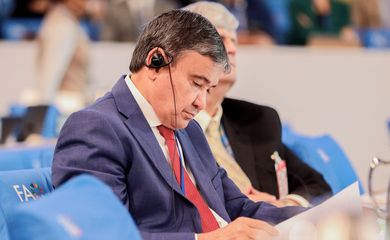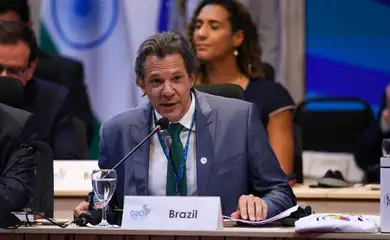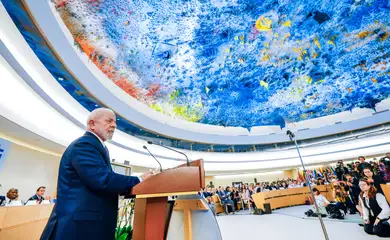Alliance Against Hunger and Poverty to face challenges

As a legacy of its presidency of the G20, a group of the world's 20 largest economies, Brazil has chosen as one of its priorities the fight against hunger, a problem that affects more than 700 million people worldwide. The initiative, called the Global Alliance Against Hunger and Poverty, aims to pool resources and knowledge to help build public policies.

The official launch of the Global Alliance Against Hunger and Poverty is set to coincide with the G20 Leaders' Summit starting on November 18. Following the launch, the initiative will be managed by an international structure with offices in Rome (Italy), Addis Ababa (Ethiopia), Bangkok (Thailand), Brasília (Brazil), and Washington (US).
Experts interviewed by Agência Brasil support the alliance but caution that it must overcome significant challenges to be effective. Two key issues stand out: ensuring countries implement long-term measures that deliver sustained results, and involving civil society in policy implementation.
In relation to the first point, Professor Renato Sérgio Maluf, coordinator of the Reference Center for Food and Nutritional Sovereignty and Security (Ceresan) at the Federal Rural University of Rio de Janeiro (UFRRJ), argues that the actions must adopt a broader, more systematic approach to human rights. He emphasizes the need to avoid welfare-based policies with a short-term, emergency focus, and instead prioritize more sustainable, structural initiatives.
“Programs aimed at combating hunger and poverty must focus on addressing inequalities. It’s not just about income transfers or food donations. Brazil's successes in this area cannot be explained without considering the role of job recovery, the minimum wage policy, and the introduction of various social rights,” says Renato Maluf.
Regarding the effective participation of society, the professor highlights that it largely depends on the political and social context of each country—specifically, the degree of freedom citizens have to fight for and demand their rights.
“The Brazilian methodology in this field has a very important component, which is social participation. And you can't transfer that. It depends on the more or less democratic dynamics of each country. In Brazil, we have a deeply rooted belief in the role of social movements. We hope that the platform will also stimulate similar processes of participation,” says Maluf.
Experience
For Mariana Santarelli, coordinator at FIAN Brazil, a human rights organization that advocates for the right to adequate food and nutrition, the country's great asset in promoting the alliance lies in the decades of experience it has built in the fight against hunger and poverty.
“Incredibly, we see that even in the countries of the Global North, there are no such efficient policies aimed at guaranteeing the right to food. We are a benchmark; we have included the right to food in the Federal Constitution, along with an organic law on food and nutritional security, a system to guarantee this right, and investments from our own budget. This is not the case in much of the world,” said Santarelli, who is also a member of the National Council for Food and Nutritional Security (CONSEA).
Basket of Policies
The core of the Global Alliance Against Hunger is a comprehensive basket of policies, featuring around 50 potential actions to combat hunger and poverty. The goal is to adapt these policies to the unique contexts of each country. They are organized into ten broad categories.
These include: social protection (e.g., school feeding programs), access to basic services (e.g., drinking water), access to productive assets (such as land tenure), infrastructure (e.g., mobility and information), credit and financial services, support for small farmers, nutrition, integrated programs (e.g., climate resilience), cross-cutting tools (e.g., farmer registration), and financing (e.g., tax reforms).
The platform is designed as a collaborative effort, allowing all members to edit, add examples of successful policies, and propose new policy initiatives. For a new policy suggestion to be considered, it must meet five criteria: it must be a clearly defined policy instrument with a specific scope; it must be feasible for governments to implement; it must be supported by data demonstrating its effectiveness; it must primarily target those living in poverty and hunger; and it must contribute to achieving Sustainable Development Goals 1 (poverty eradication) and 2 (zero hunger and sustainable agriculture).
“To combat hunger and poverty, state-led policies are essential. This may seem obvious in Brazil, but it’s not the case in many countries, particularly in Africa, where international agencies and NGOs often take on the role of policy implementation. This is a major difference between this alliance and others created in the past,” says Mariana Santarelli.
Joining
Germany was the first G20 country to join the Global Alliance, committing to support sustainable agriculture and strengthen social safety nets, including minimum wage policies.
The Organization of American States (OAS) joined the group, announcing its intention to "align actions, develop innovative solutions, and share practices and experiences that contribute to the fight against poverty and inequality."
The Rockefeller Foundation was the first philanthropic organization to join the initiative, pledging to contribute financial resources, technical assistance, capacity-building support, and knowledge to help countries implement school feeding programs.
This was followed by the accession of International Financial Institutions (IFIs), a group of multilateral organizations that includes the African Development Bank (AFDB), Asian Infrastructure Investment Bank (AIIB), Latin American and Caribbean Development Bank (CAF), European Investment Bank (EIB), Inter-American Development Bank (IDB), International Fund for Agricultural Development (IFAD), International Monetary Fund (IMF), New Development Bank (NDB), and the World Bank Group (WBG).





